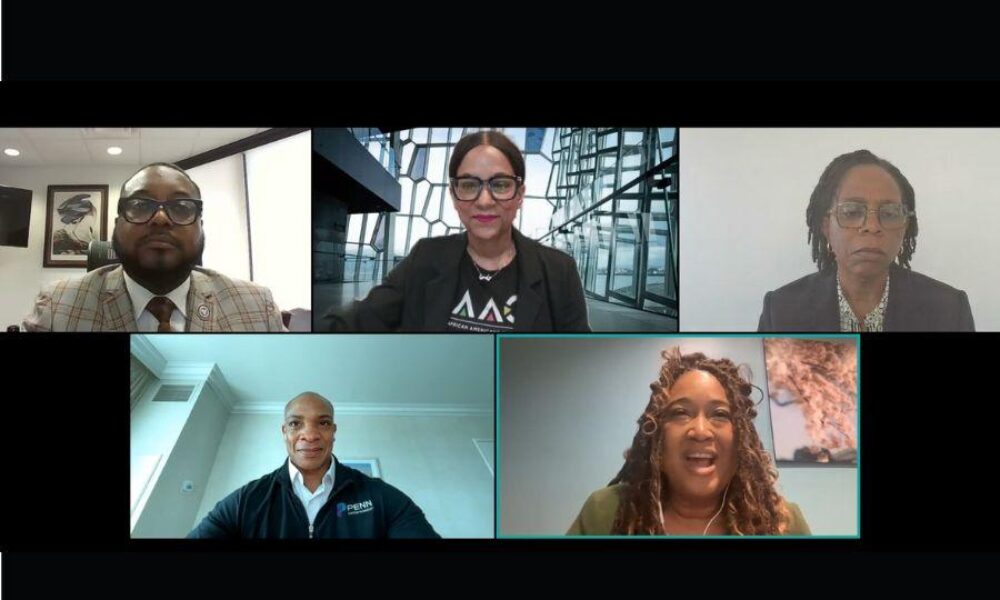Ontario Lottery and Gaming Corporation Vice President—Community, Sustainability & Social Responsibility Catherine Meade remembers when people seeking help with problem gambling had to go to a room in the back of the casino “past the washroom, off to the side.”
“The thinking was that anyone wanting help, they’ll want to actually slink in the back corner,” Meade said.
But now, the OLG boasts Play Smart centers in many Ontario casinos near the entrances.
“It really demonstrates the destigmatization of problem gambling, or even just getting information about gambling,” Meade said Thursday during the webinar “Creating Successful Responsible Gaming Programs in North America,” hosted by African Americans in Gaming and the American Gaming Association. “They’re on your way in. And in some places, it’s really part of the floor, well lit, brightly colored and really encouraging people to come in and get information. … It’s a very positive space.”
That illustration of how the gaming industry, circa 2025, treats problem gambling is a far cry from when companies were reluctant to address the subject.
Justin Carter, Penn Entertainment’s Senior Vice President, Regional Operations, said the operator’s commitment to responsible gaming starts in the C-suite and extends to all states, Penn’s international sites and online.
“We review responsible gaming issues that may happen, and we figure out strategies to minimize them,” Carter said. “We look at trends, which is extremely important, because if there are trends, maybe we need to develop different policies or think differently about how we’re handling things. … That is from a senior level and then it trickles down to the properties that we operate.”
Louisiana Gaming Control Board Chairman Chris Hebert says one of the keys to addressing problem gambling is through cooperation. The LGCB notably collaborates with National Council on Problem Gambling and other organizations to get a “boots on the ground view of what’s going on because it makes no sense for me to help to create regulations in my state if the individuals in my state who are affected are not benefitting from that, it doesn’t make any sense.
“They are the ones speaking to clinicians. They are the ones who are seeing the effects of this, along with our operators. And that’s why training is so important for casino employees – they’re seeing the ill effects of this, if you will, along with our operators. It’s important for me as I regulate, because I carry a big stick as well as our board does, to hear from them what needs to take place because at the end of the day, and I think this is a little bit of my attorney general background, I’ll protect citizens.”
Arkansas Council on Problem Gambling Executive Director Vena Schexnayder admitted it’s hard to provide all the services needed to treat problem gambling. She noted that “it takes a village” to provide treatment.
“It’s a coordinated effort between medical health constituents, our Department of Health and Human Services and just making sure the marketing and messaging on for RG, and to keep those safe,” Schexnayder said. “Those that know that if they need help, it’s available and what the tools are. That’s the biggest thing that I see, communication between all segments of the industry, to work together for that.”


